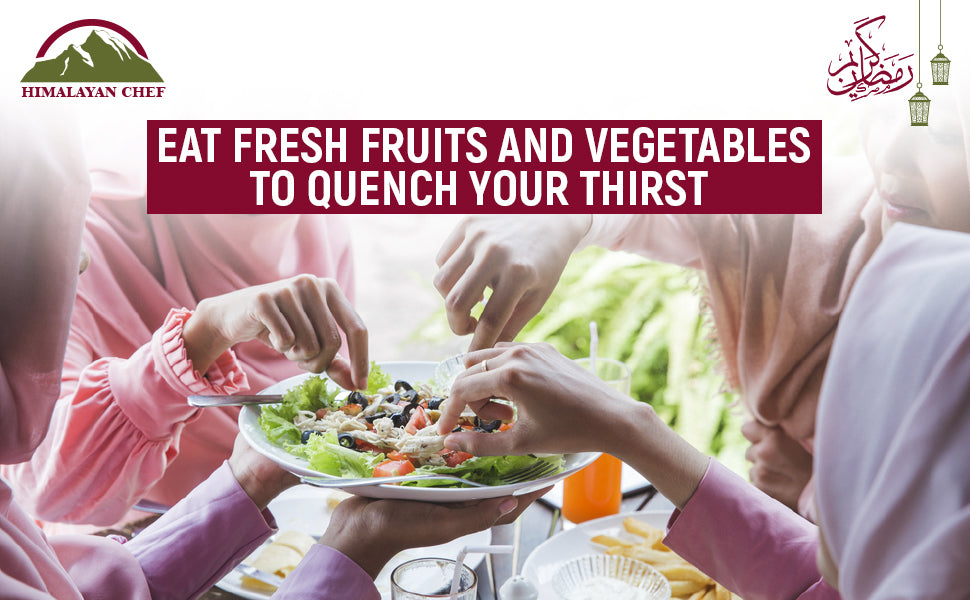Best 5 Effective Foods that People Should Eat Specially in Ramadan
Posted by HIMALAYAN CHEF
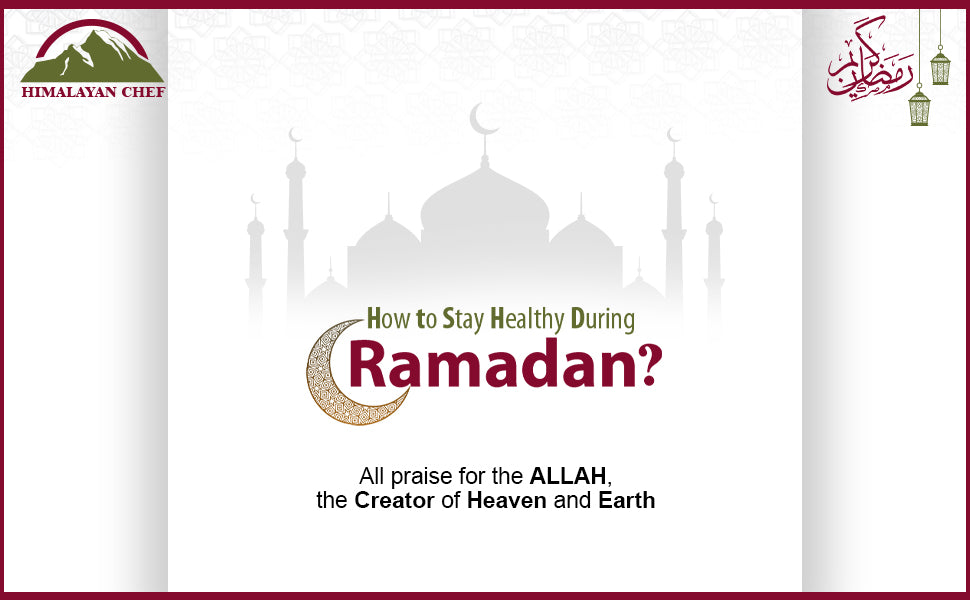
All praise for the ALLAH, the Creator of Heaven and Earth, and all in between. Ramadan brings with it a plethora of benefits, many gifts, and several opportunities to be forgiven. We believe it is a wonderful month because we are Muslims.
“Fasting is prescribed for you as it was prescribed for those before you, that you may attain taqwa.” (Quran, 2:183)
Ramadan is a month in which Muslims refrain from food, drink, and oral medications from sunrise to sunset each day. Fasting has not only a physical but also a religious and material component.
It is a period of intensified worship, Taraweeh (nightly prayers), Quran readings, charity, and family and community gatherings. Ramadan's goals include enhanced spirituality, identity, tolerance, and thankfulness. It's the ideal moment to take our Deen, or Islamic way of life, to the next level, which includes nutrition.
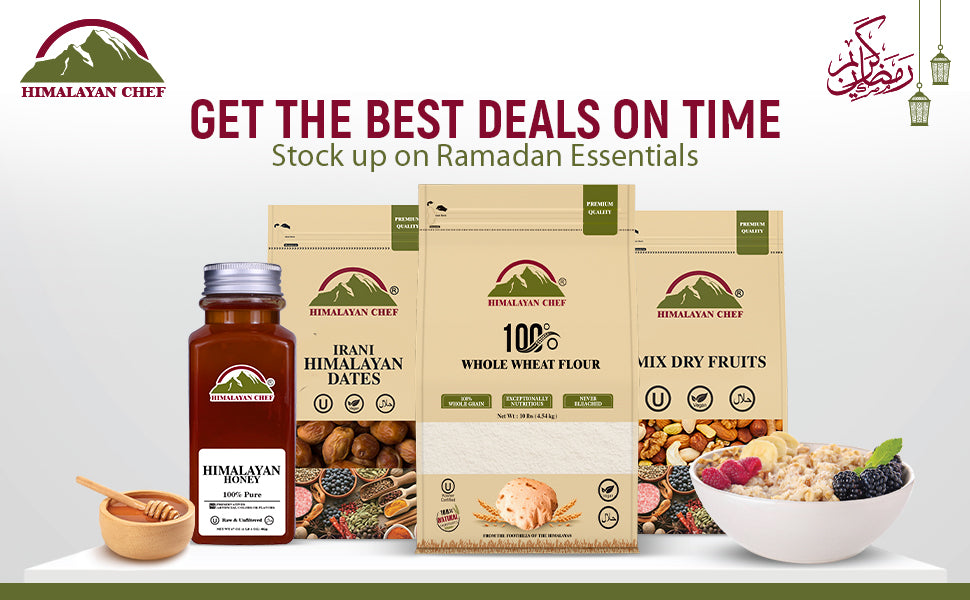
During Ramadan, it's critical to eat well. Optimizing energy and health requires including balanced meals and enough fluids.
1. Barley Porridge
▶ Hydration: It is a common concern in Ramadan. Some foods can help you to feel hydrated for a long time. Jo ka Daliya is one of them. Barley porridge cooked in milk absorbs a large amount of water in itself during ripening does not make you feel thirsty all day long and gives cool effect. For this reason, people who eat it at the time of Sehri do not have dehydration and do not feel thirsty for long.
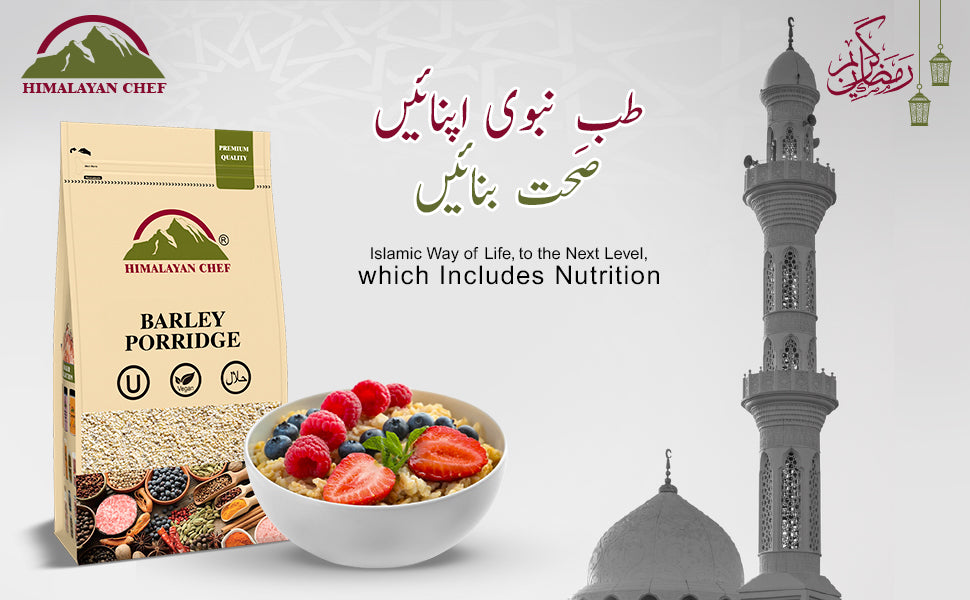
▶ Health Benefits: Along with hydration barley has many other health benefits.
• The soluble fiber in barley decreases appetite and increases feelings of fullness during Ramadan. It might even help you lose weight.
• Barley's high fiber content aids digestion by allowing food to flow through your gut and promoting healthy bacteria in the gut. As a result, prevents constipation during Ramadan.
• The insoluble fiber contained in barley appears to lower cholesterol levels by inhibiting cholesterol production and acts as a helper for hypertension and heart patients during Ramadan.
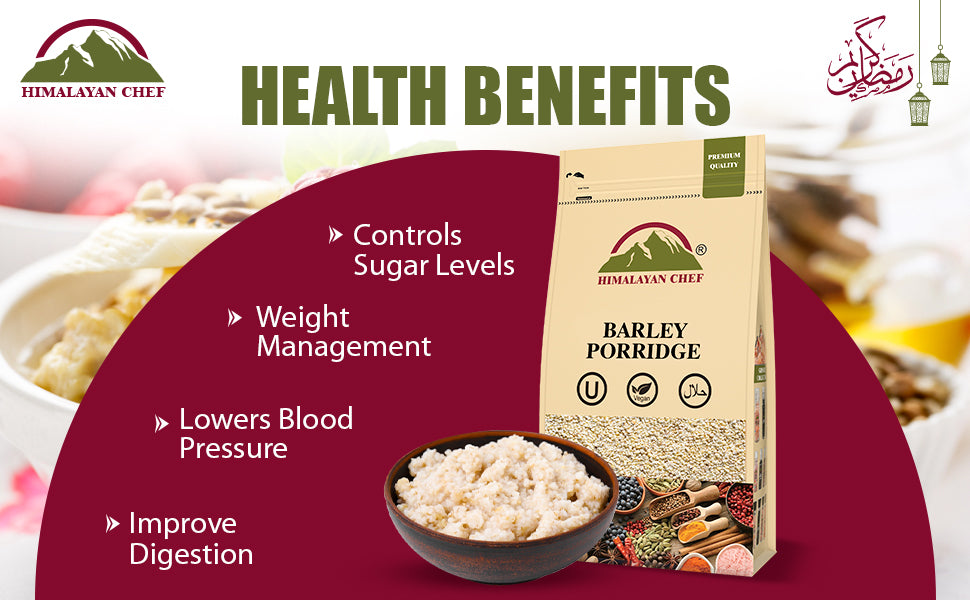
2. Fresh Fruits and Vegetables
Fruits and vegetables offer a healthier approach to the desserts and cookies that are commonly consumed during Ramadan. Because fruits and vegetables are high in vitamins and minerals, are the best nutritious sources during Ramadan.
• Fruits, with their great nutritional value, are the best food to eat after a fast. Fruits will make your body feel more energized for the next day of Ramadan.
• Fresh fruits and vegetables may help to maintain electro-light balance in the body because they are rich in minerals.
• Fruits and vegetables with high water content help you to stay hydrated for a long time such as watermelon, cucumber, etc.
▶ How to Eat During Ramadan:
You can have a mixed fruit and vegetable salad in Suhur to keep you energetic all through the day. After Iftar, you can consume raw fruits.
Hazrat AISHA (R.A) stated that:
"The Prophet (Allah bless him and give him peace) kept eating watermelon with ripened dates,"
According to the Prophet (S.A.W.W.)
"The warmth of the item (dates) nullifies the coldness of that (watermelon)," He used to say.

3. Milk and Yogurt
According to nutritionists, milk or yogurt is more useful than plain water in quenching intense thirst after Iftar. They contain calcium, carbohydrates, and electrolytes to prevent dehydration.
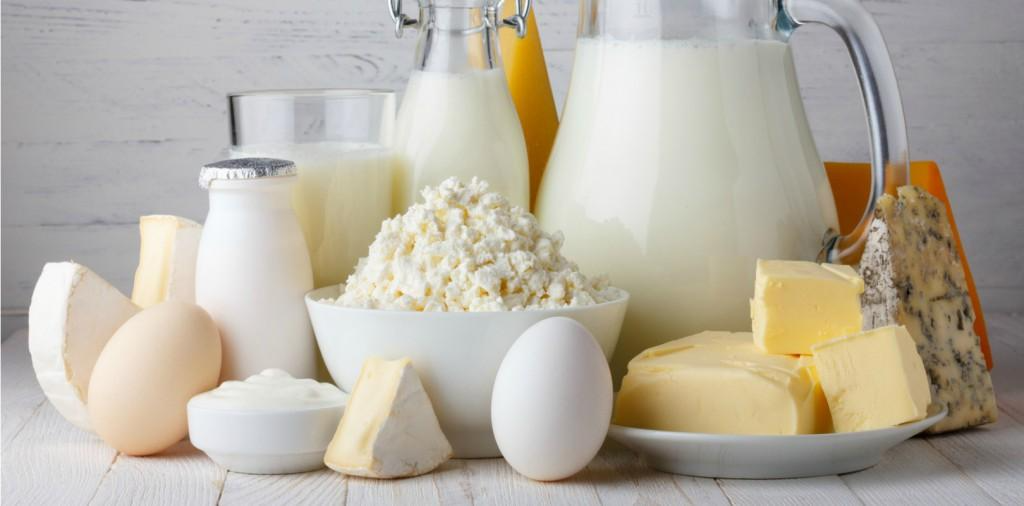
▶ How to eat during Ramadan:
Calcium and vitamins are abundant in milk products. To stay full and hydrated during the day, try a yogurt smoothie or a date milkshake. You may also make a healthful Suhur by mixing it with fruit and grains. Milkshakes can also be consumed in Iftar.
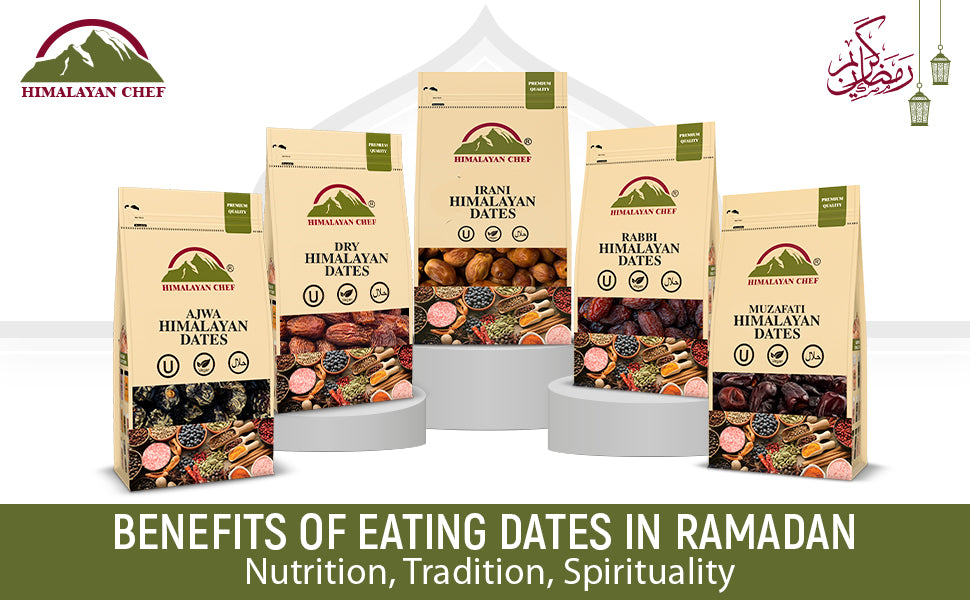
4. Dates
Although three dates are eaten at the beginning of Iftar every day during Ramadan for spiritual reasons, they also have numerous health benefits.
• One of the most crucial components of fasting is having enough energy, and dates are one of the best foods for that. An average serving of dates provides 31 grams of carbs, making it one of the best foods for giving you a boost.
• Potassium is abundant in dates. This potassium is absorbed by the body daily when dates are eaten during Iftar on an empty stomach. As a result, the level of harmful cholesterol in the blood decreases.
• According to a study by the US Department of Food and Nutrition, people who eat dates daily. They have a much lower risk of bowel cancer. Dates have the effect of increasing the rate of beneficial bacteria in the intestines which reduces the chance of bowel cancer in the body.
• The palm contains vitamin B6 which keeps the brain active and improves its function and memory. Eating three dates during Iftar and eating continuously for a month gives the brain the required amount of Vitamin B6. Which improves its functions. This improvement is not only for one month but also has far-reaching effects. It not only increases memory and intelligence but also removes mental weakness.
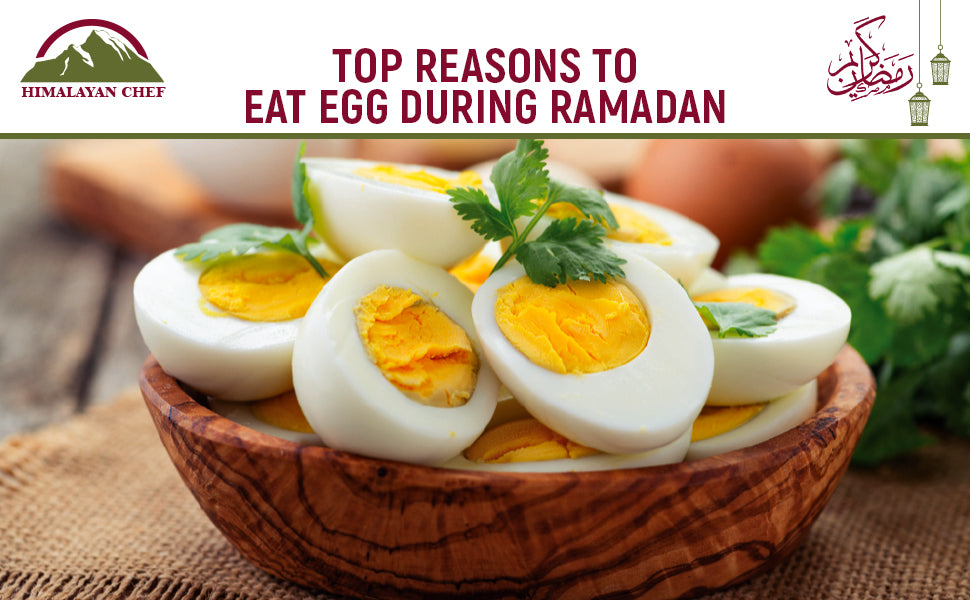
5. Egg
Eggs are one of the food products that can be eaten in Suhur meals. Because of their high content, eggs can provide a satisfying feeling for a long time. Protein, vitamins B12, B6, E, D, A, calcium, iron, and zinc are all abundant in eggs. Suhur, which is high in protein, is vital to maintain your going during the day.
• Eggs may help you to control blood sugar, which may keep your hunger in check.
• By eating eggs in sahur meals, you can have a more safe and productive fasting experience.
• Eggs keep you fuller for longer and fulfill your desires throughout the day.
How to Eat During Ramadan:
Make an omelet with a variety of vegetables, or try scrambled eggs with spinach. Hard-boiled eggs with a side dish are also an excellent way to increase your energy during Ramadan.
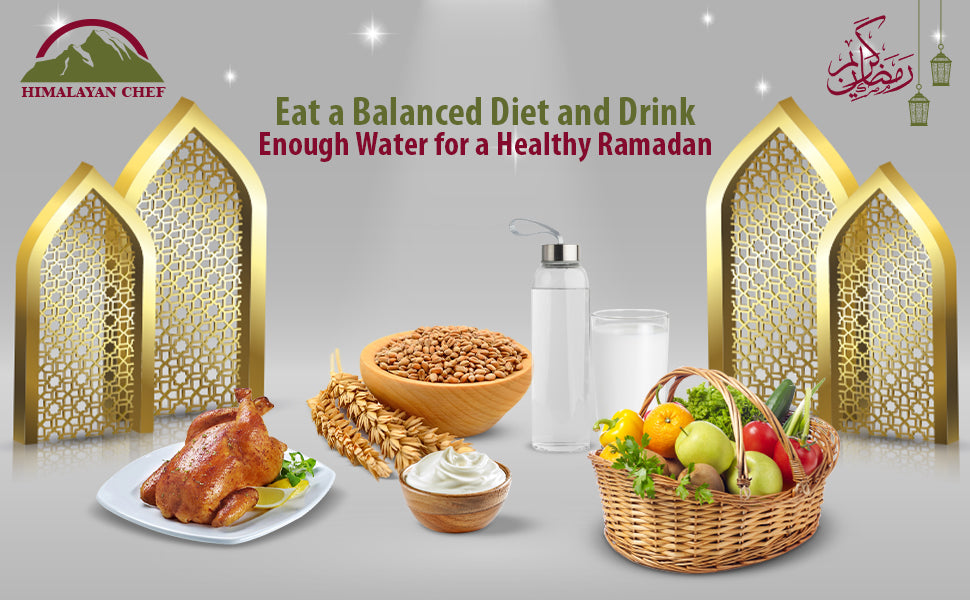
Bottom Line
Ramadan is a fantastic opportunity to overcome harmful eating habits, but the majority of people aren't taking advantage of it to its full potential. To get the most out of fasting, a person should think carefully about the type and quantity of food they consume throughout this month of Ramadan.
For the length of Ramadan, a diet that is lower in calories but higher in nutrients can keep you healthy and energized.
Include bread, cereals, and other grains in your diet, as well as fruits and vegetables, meat, fish, and poultry, yogurt, or cheese, and healthy fats. Foods that take a lot of time for digestion and release energy should be prioritized. Foods high in fiber are among these.
SHARE:



